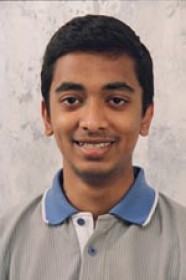
10:00 am to 12:00 am
Event Location: NSH 1507
Abstract: This thesis explores the topic of geolocation with range. A robust method for localization and SLAM (Simultaneous Localization and Mapping) is proposed. This method uses a polar parameterization of the state to achieve accurate estimates of the nonlinear and multi-modal distributions in range-only systems. Several experimental evaluations on real robots reveal the reliability of this method.
Scaling such a system to large network of nodes, increases the computational load on the system due to the increased state vector. To alleviate this problem, we propose the use of a distributed estimation algorithm based on the belief propagation framework. This method distributes the estimation task, such that each node only estimates its local network, greatly reducing the computation performed by any individual node. However, the method does not provide any guarantees on the convergence of its solution in general graphs. Convergence is only guaranteed for non-cyclic graphs (ie. trees). Thus, an extension of this approach which reduces any arbitrary graph to a spanning tree is presented. This enables the proposed decentralized localization method to provide guarantees on its convergence.
Scaling in the traditional sense involves extensions to deal with growth in the size of the operating environment. In large, feature-less environments, maintaining a globally consistent estimate of a group of mobile agents is difficult. In this thesis, a novel multi-robot coordination strategy is proposed. Based on the observability analysis of the system, the propose controller achieves the tight coordination necessary to obtain an accurate global estimate. The proposed approach is demonstrated using both simulation and experimental testing with real robots.
Committee:Sanjiv Singh, Chair
George Kantor
Howie Choset
Wolfram Burgard, University of Freiburg
